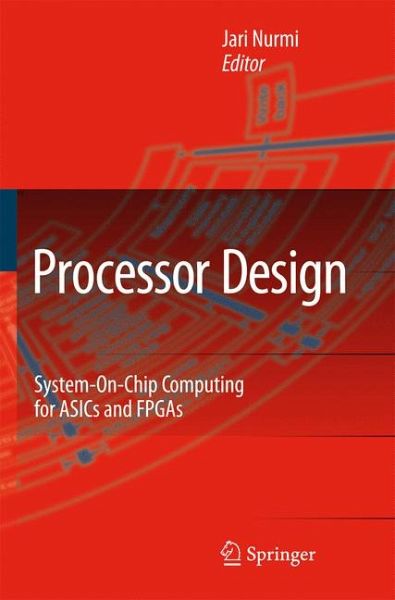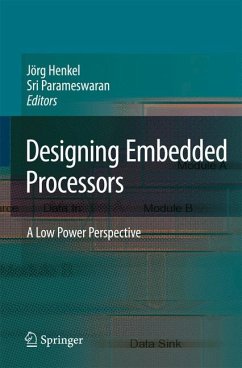
Processor Design (eBook, PDF)
System-On-Chip Computing for ASICs and FPGAs
Redaktion: Nurmi, Jari
Versandkostenfrei!
Sofort per Download lieferbar
112,95 €
inkl. MwSt.
Weitere Ausgaben:

PAYBACK Punkte
56 °P sammeln!
This book provides insight into a number of different flavors of processor architectures and their design, software tool generation, implementation, and verification. After a brief introduction to processor architectures and how processor designers have sometimes failed to deliver what was expected, the authors introduce a generic flow for embedded on-chip processor design and start to explore the vast design space of on-chip processing. The types of processor cores covered include general purpose RISC cores, traditional DSP, a VLIW approach to signal processing, processor cores that can be cu...
This book provides insight into a number of different flavors of processor architectures and their design, software tool generation, implementation, and verification. After a brief introduction to processor architectures and how processor designers have sometimes failed to deliver what was expected, the authors introduce a generic flow for embedded on-chip processor design and start to explore the vast design space of on-chip processing. The types of processor cores covered include general purpose RISC cores, traditional DSP, a VLIW approach to signal processing, processor cores that can be customized for specific applications, reconfigurable processors, protocol processors, Java engines, and stream processors. In addition, the book describes co-processor and multi-core design approaches that deliver application-specific performance over and above that which is available from single-core designs.
Dieser Download kann aus rechtlichen Gründen nur mit Rechnungsadresse in A, B, BG, CY, CZ, D, DK, EW, E, FIN, F, GR, HR, H, IRL, I, LT, L, LR, M, NL, PL, P, R, S, SLO, SK ausgeliefert werden.












